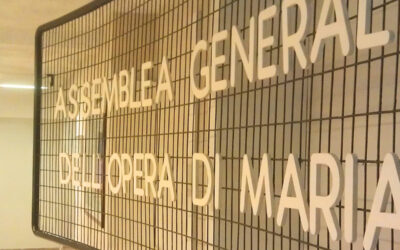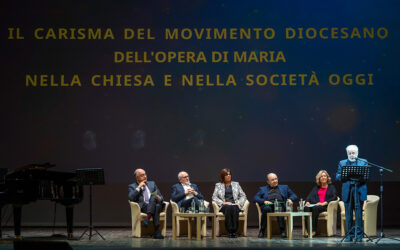In a world troubled by numerous political, ethnic, and religious conflicts, forty-five bishops of various Churches, friends of the Focolare movement from twenty different countries, are meeting together. From countries as diverse as Ethiopia, Finland, Australia, India, from South and North America, they are witnessing that, while respecting different traditions, communion is not only possible, but more than ever a duty for Christians. This is the 25th ecumenical meeting of Bishops and is taking place from September 20 to 27 at the Mariapolis Centre at Castelgandolfo. Their purpose is to explore – as the title suggests – the love for the crucified and forsaken Christ as an indispensable way towards full visible communion among Christians, and hence the promotion of universal fraternity. The venue chosen by the bishops this year is Rome, so that they can have a direct contact with the Pope, Benedict XVI. Previous meetings have been held in places of significance, like Istanbul where the Bishops met the Ecumenical Patriarch Bartholomew I, and Bucharest, in the Romanian Patriarchate, where they were welcomed by Patriarch Teoctist. The present group is from twenty-two Churches and Ecclesial communities from the East and the West. The Pope will meet them on Sunday at midday for the Angelus and for a personal greeting. Cardinal Walter Kasper, president of the Pontifical Council for the Union of Christians, will address the bishops next Tuesday on the subject, “Changes in the ecumenical scene, with special reference to orthodoxy”. He has just returned from the first plenary session of the International Commission in Belgrade, marking the resumption of the international dialogue between the Catholic Church and the Orthodox Church. An eagerly awaited contribution will be from Chiara Lubich, the founder and president of the Focolare Movement. This will examine the transition from the “collective and cultural night” that has fallen today on many parts of society, to a new presence of Christ among us, that can create a new current of love, sharing and participation among individuals and peoples. The visit to the Catacombs, symbol of the common roots of Christianity, and the meeting with the various communities of Rome – Catholic, Orthodox, Anglican, Evangelical Lutheran – will be further incentives for a deeper communion, and for a coherent and convincing witness in the world. The whole meeting will be steeped in the characteristic “spirituality of unity” of the Focolare Movement, which has been welcomed by many Christians as an a ecumenical spirituality, that creates a “dialogue of life” among individuals, communities, groups and movements. These meetings are based on the commitment to put the Gospel into practice, and first and foremost the new commandment of Jesus (cf Jn 13:34). They have enjoyed the blessing of Church Leaders right from the start, and promote among those in positions of responsibility a spirit of communion that, especially in recent times, has found an increasing echo among Christians.
Let yourself be surprised!
Let yourself be surprised!




0 Comments